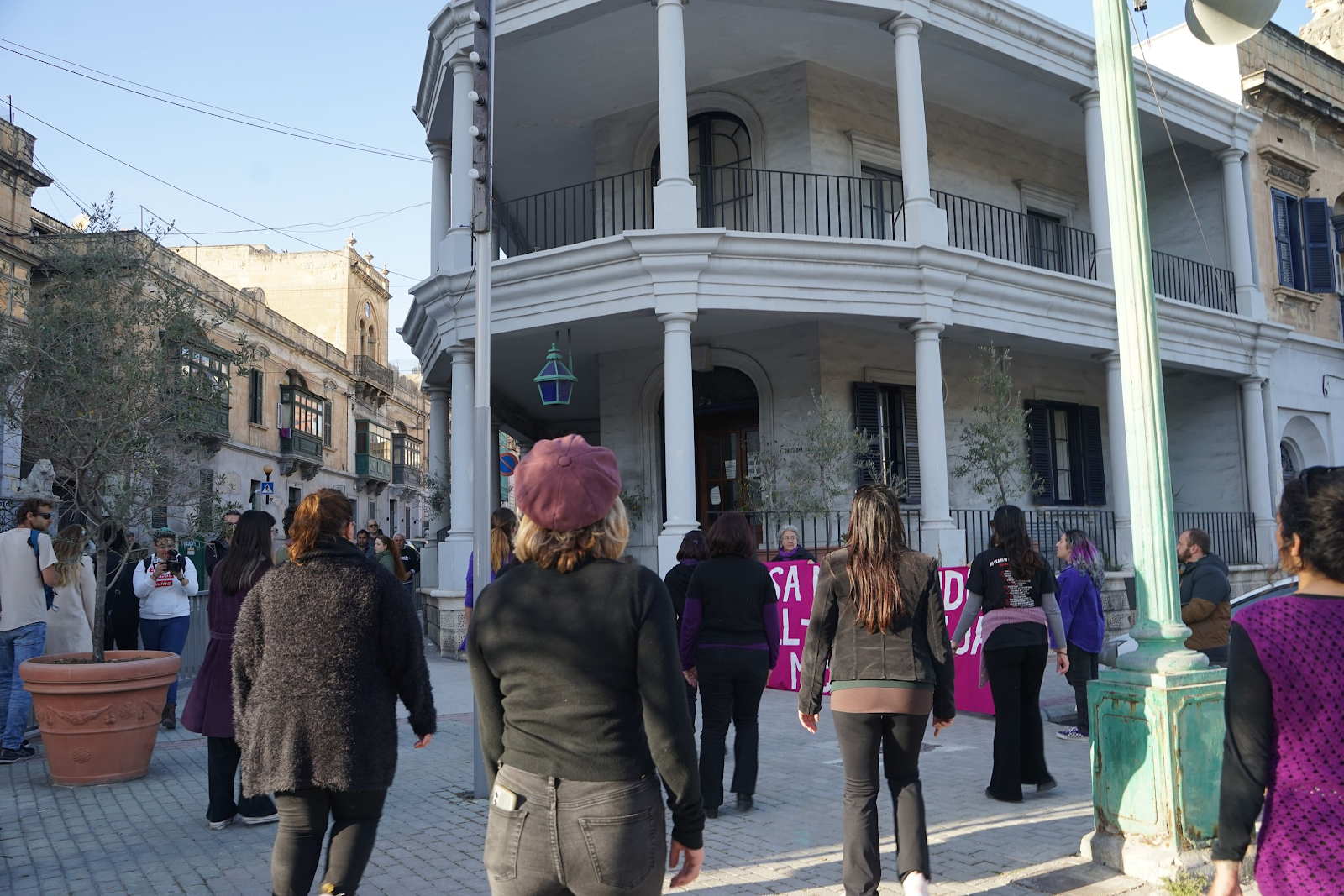Borg, Maria. C. (2021). Civil society and the public sphere in Malta :a sociological analysis of women's organisations (Master’s dissertation, Sociology, University of Malta).
This study explores civil society and the public sphere in Malta, by focusing on the case of women’s organisations in Malta.
This research seeks to understand the profile of organisational forms that embodies women’s organisations in Malta and Gozo through a mapping exercise involving women’s groups on the islands, and garner further in-depth research through qualitative interviews. This will enable a systems view of the civil society ecosystem, which in turn informs the field of collective action driven by women’s organisations. Using sociological theory, this research investigates (1) the role of women’s organisations in the public sphere in Malta, (2) which are the women’s organisations in civil society in Malta, (3) what they do, (4) how they do it, (5) why, and (6) the values that they have.
This study adopted a case study design, making use of both quantitative and qualitative data sources. A total of 52 women’s organisations in Malta and Gozo were consulted for the purpose of this study. Data collected from surveys and elite interviews were subsequently analysed thematically.
This study presents a number of findings. The composition of women’s organisations shows a highly diversified associational life forming civil society, where women organise for multiple interests in different ways. The formality and structure which women’s organisations take on are decided elements which link to the ideology and strategy adopted by the respective organisation.
Women’s organisations organise by organisational and coalition modes of coordination and use the internet to broker connective action. Although a small number of organisations do identify as part of different social movements, identification of WOs with a singular social movement is sparse, which puts into question the existence of a broad women’s movement given that the existence of social movements depends on organisations identifying themselves as part of a broader social movement (Diani, 2015; Melucci, 1996; Tilly, 1993-1994).
Intermediary organisations and networks supply the ‘connective tissue’ enticing and supporting different organisations to come together for the achievement of common goals. With few organisations employing staff, most organisations active in the field are run through the engagement of volunteers. Connections and disconnections of women’s organising with feminism as an ideology emerge from this study, specifically with regards to women’s organisations’ subscription or otherwise to a feminist identity. 52% of the organisations involved in the study confirm the feminist position of the organisation with responses also showing limited feminist consciousness across the field. 51% of women’s organisations are motivated by the need to inspire change.
Women’s organisations in the public sphere are more likely to speak about the need for change, strategising their way through institutionally brokered spaces, influencing behind the scenes, setting up coalitions to project a stronger voice, engaging in consciousness raising, and staging contentious action attracting high media visibility. Women’s organisations strive to work in tandem with political actors partnering up in state power, emphasising Gramsci’s ‘political society + civil society’ vision (Buttigieg, 1995; Jessop, 2020). Despite their close relations with institutional stakeholders, theirs remains the prerogative that also calls out political society “to hold them to account”.
Asked whether she would like to add anything, Borg told us
"One of the elements emerging in this research is the identification of abortion as a possible issue which can divide women’s organisations. This is because organisations which regularly support each other may take opposite sides in the argument, by being either pro-choice or pro-life. After the Prudente case in 2022, when pro-choice activists campaigned for the introduction of abortion in Malta, many women’s organisations did not publicly take sides in the argument. Further studies investigate further the way in which networks within women’s organisations, and among women’s organisations possibly perpetuate a muted narrative of women’s experiences in the public sphere, as opposed to the more dominant voices of professionals such as doctors and lawyers in the fight for and against abortion."
Online link to paper:
https://www.um.edu.mt/library/oar/handle/123456789/91421
 |
| Image: Moviment Graffitti |


.jpg)
.jpg)

